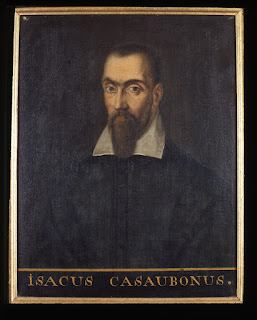"All such as be studious of peace": Casaubon and the eirenic, generous orthodoxy of King James I
Wherefore his Maiestie thinketh that there is no more compendious way to the making of peace, then that things necessarie should be diligently separated from things not necessarie: that all endeauours might be spent about the agreement in the necessarie, and as touching the not necessarie, that a Christian libertie might bee granted. Simply necessarie, his Maiestie calleth those things, which the word of God expressely chargeth to be beleeued, or practised: or which the ancient Church by necessarie consequence, hath drawne out of the word of God. But such things, which out of the institution of men, although with a religious, and wise intent, yet besides the word of God, were receiued, and vsed of the Church for a time, those he thinketh may be changed, or relaxed, or abolished ... If this distinction were vsed for the deciding of the controuersies of these times, and if men would ingenuously make a difference betwixt diuine, and positiue law, it seems that amongst godly and moderate men, touching things absolutely necessarie, there would bee no long, or bitter contention. For both (as I said euen now) they are not many, and they are almost equally allowed of by the name of Christian. And his excellent Maiestie doth hold this distinction to be of such moment for the diminishing of controuersies, which at this time doe so vexe the Church of God, that he iudgeth it the dutie of all such as bee studious of peace, diligently to explane it, to teach it, to urge it.
It is another reason why Hampton's account of Reformed Conformity as the 'orthodoxy' of the Jacobean Church needs to be significantly qualified. The eirenic, generous orthodoxy of James and Casaubon does not at all easily fit with the Reformed Conformist critique of Rome and Lutheranism, and the insistence on the need for doctrinal definitions "for the deciding of the controversies of these times". While the generous, peaceable orthodoxy of James and Casaubon could comprehend Reformed Conformity, it had a significantly larger and more generous vision of the Church catholic, for those "things absolutely necessary ... are almost equally allowed of by all" Christians.




Comments
Post a Comment